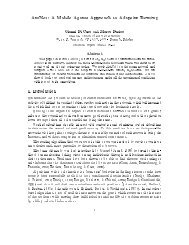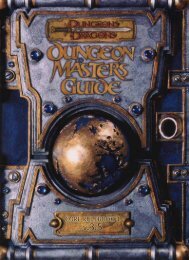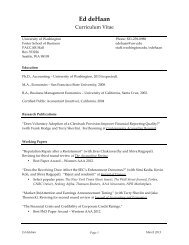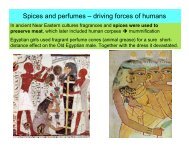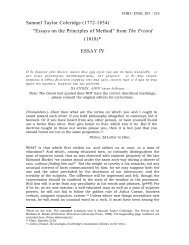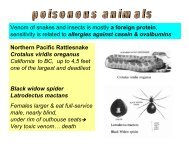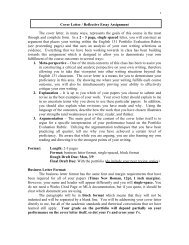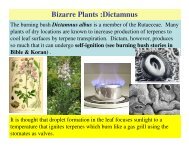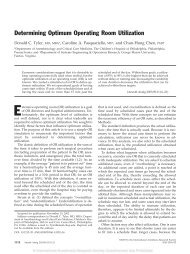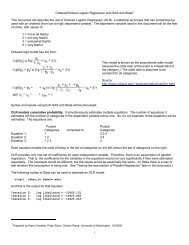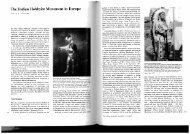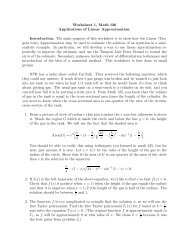The Lasting Presence of Gerard's Herball
The Lasting Presence of Gerard's Herball
The Lasting Presence of Gerard's Herball
Create successful ePaper yourself
Turn your PDF publications into a flip-book with our unique Google optimized e-Paper software.
goal was identification, and discovery <strong>of</strong> the grass’s virtues. Perhaps she had intentions<br />
for the seeds. I remembered Johnson’s observation about the connection between flax<br />
seeds and these very pages, between which the preserved flower rested:<br />
…this paper whereon I write, that first from seed became flaxe; then after much<br />
vexation thread; then cloth, where it was cut and mangled to serve the fashions <strong>of</strong><br />
the time, but afterward rejected and cast aside; yet unwilling so to forsake the<br />
service <strong>of</strong> man for which God had created it, again it comes (as I may term it) to<br />
the hammer, from whence it takes a more noble form and aptitude to be imployed<br />
to sacred, civil, foreign, and domestic uses.<br />
I closed the book and contemplated the many transformations <strong>of</strong> plants, ideas, images,<br />
and people that came together to create it and pass it along. <strong>The</strong> tooling on the cover, a<br />
single unbroken indentation, was impressed with a roller rather than a stamp, according<br />
to Sandra. To me it was a delicate symbol <strong>of</strong> continuity, nothing particularly remarkable,<br />
almost unnoticeable, tracing the edge <strong>of</strong> a calf hide cover. Inside someone wrote, “an<br />
unusually fine copy.”<br />
I returned to pages “370 and 371” and the fragile grass florets. I did not want to touch<br />
them again, and it occurred to me that picking a spikelet <strong>of</strong> grass in order to identify it<br />
was a particularly American thing to do. <strong>The</strong> Puritans’ need for an herbal was especially<br />
urgent, and Gerard’s <strong>Herball</strong> was one <strong>of</strong> three English herbals that were carefully<br />
transported across the Atlantic. (Gerard’s <strong>Herball</strong>, John Parkinson’s Paradisi, and<br />
Nicholas Culpeper’s Herbal are discussed at length in Ann Leighton’s Early American<br />
Gardens.) While the Puritans had these reference books, they had left the place—and the<br />
plants—upon which the herbals were based. <strong>The</strong>y needed a field guide, and an herbal <strong>of</strong><br />
18



